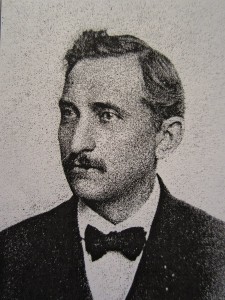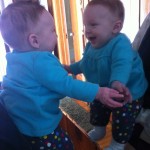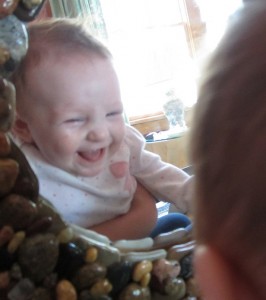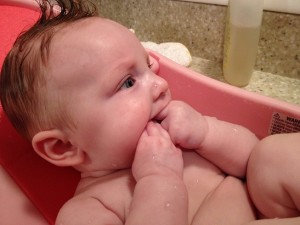The Bible tells us God has never changed, not all the way from before Creation through to this day. That’s the reason his salvation plan saved souls in centuries past in the same life-changing ways it does today.
In the past few days I’ve been studying my family tree by way of two 3” thick albums chock full of pictures and data about those who came before me. Yesterday I mentioned my paternal grandfather, Carl Johansson, whom I’ve been getting to know through these pages.
Having been born in Sweden in 1866, he boarded a ship for America while still a teenager of 19. Five years later, after becoming a citizen of the United States, he Americanized his name from Johansson to Johnson in an effort to become “thoroughly American.”
But whether in Sweden or America, he testified to having aligned with Jesus as personal Savior during childhood and holding onto that spiritual citizenship both as a Swede and as an American. He told his family he had made sure of that on confirmation Sunday at the Swedish Evangelical Free Church before the ceremony. Early that morning, as a 12 year old, he’d climbed to the attic and “gotten right with God,” figuring he’d better not stand among the confirmed without first confirming his faith in a one-on-One meeting.
My dad, the second Carl Johnson (above), remembered his father praying at his bedside in Swedish: “God, who loves the little children, look to me, a little one.” Young Carl asked older Carl whether or not he prayed that way in his own prayers, and when he said he did, little Carl asked why. His father said, “Because in God’s eyes we are all little.” I like that this godly father was at his little boy’s bedside for a prayer time, and also that his spiritual instruction was both simple and accurate.
In the many photographs I’ve seen of my grandfather, his serious expressions mask the fact that he had a much lighter side. A business man and property owner, he suffered badly during the Great Depression of 1931-32. But in an effort to cheer a friend who had also lost he said, “Can’t we still sit on a bench and enjoy each others company just the same?”
Such levity (and common sense) during financial hardship is evidence that his faith was the bedrock of his life, not his real estate holdings or other possessions. But his beliefs showed in other ways, too. After losing his footing while swimming as a teen, he had a close call beneath a series of big waves. Once safely back on shore a friend said, “Did you pray while you were down there?”
His answer was revealing. “It was too late then. Praying should to be done before that.” Wise words by a young man who prayed.
Surely someone of strong belief in God had been praying over Carl Johansson, but who? I found my answer in ancestor data referencing my Swedish great-grandfather, Johannes Andersson, born in 1819….
“To set the mind on the flesh is death, but to set the mind on the Spirit is life and peace.” (Romans 8:6)









